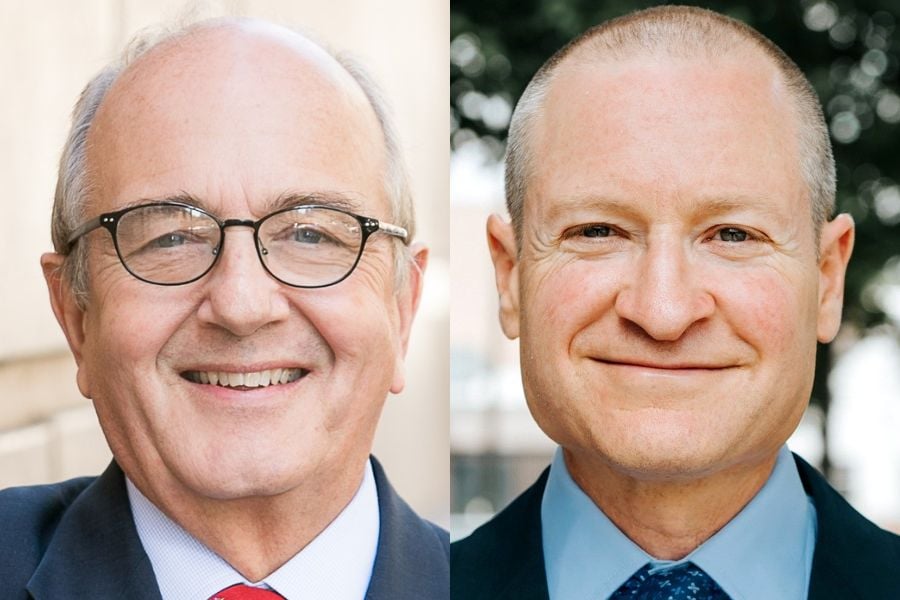

Risk management and benefits firm Milliman is facing a trial in April over the alleged mismanagement of its own 401(k) plan.
Late last week, the company’s request to quash the case through summary judgment was shot down by the judge presiding over it, who scheduled a rare bench trial to begin April 1.
Whether the case actually goes to trial is a question. Clearing motions to dismiss and defense motions for summary judgment are considered significant victories for plaintiffs, and getting over those hurdles adds pressure to reach a settlement.
Even so, the complaint that was filed more two years ago alleged that the plan suffered losses of $85 million as a result of fiduciary violations – an amount that could make a settlement difficult to attain. Since then, an expert witness projected that the plan lost about $55 million in connection with the three target-risk collective investment trusts in question, said Charles Field, chair of the financial services litigation practice group at Sanford Heisler.
“We think it’s a just and righteous case, and our goal here is to get money in the hand of these participants so they can have money to retire on,” said Field, whose firm brought the lawsuit. “If we can’t settle the case, then we look forward to taking this to trial.”
In January 2022, the lead plaintiff in the class-action case alleged that Milliman breached its fiduciary duty to the plan by including three target-risk collective investment trusts that the company subadvised. When those products were added to the plan in 2013, they were essentially new and “untested,” according to the complaint, and they underperformed peers and benchmarks in the following years, leading to losses for the participants invested in them, the plaintiff stated.
“The fiduciary needs to pay careful attention to their funds at all times, particularly if they’re in-house funds, and if they’re QDIA funds,” Field said. “What we were able to show here … is that these funds had significantly underperformed the benchmarks that the fiduciaries had been looking at for many years, going back to 2013.”
Milliman did not immediately respond to a request for comment about the case.
The three products – the United Trust Funds Wealth Preservation Strategy Target Risk Conservative, Moderate and Growth CITs – were designed to hedge inflation and market risks and cannot be compared with more aggressive investment options, said Daniel Aronowitz, president of Encore Fiduciary, a fiduciary liability insurance provider, which counts Milliman among its clients.
Court records show that Milliman’s own employees wanted the CITs as investment options as a hedge against market downturns such as that of the 2008 financial crisis, Aronowitz said.
The Employee Retirement Income Security Act “is supposed to be a law of process,” rather than about the performance of investment options in hindsight, he said.
“We think they did everything right. They had a superb process,” Aronowitz said. “We think that Milliman, if they go to trial, will win.”
Showing a prudent process can be a powerful defense, he said, citing recent wins in court by B. Braun Medical and Yale University in cases involving their defined-contribution plans.
The three CITs at the center of the Milliman case represented about $219 million of the plan’s total $1.6 billion in assets as of the end of 2022, according data from the Department of Labor. At that time, there were nearly 5,000 participants in the plan. There were a total of 19 investment options on the plan menu at the time, including a mix of mutual funds and CITs from a range of asset managers.
“These are just three funds out of a diversified portfolio that Milliman was offering their participants,” Aronowitz said.

Use of the technology is growing and asset managers see transformative benefits.

Research reveals expectation could be replaced by disappointment.

"Im glad to see that from a regulatory perspective, we're going to get the ability to show we're responsible [...] we'll have a little bit more freedom to innovate," Farther co-founder Brad Genser told InvestmentNews.

Former advisor Isaiah Williams allegedly used the stolen funds from ex-Dolphins defensive safety Reshad Jones for numerous personal expenses, according to police and court records.

Taking a systematic approach to three key practice areas can help advisors gain confidence, get back time, and increase their opportunities.
Orion's Tom Wilson on delivering coordinated, high-touch service in a world where returns alone no longer set you apart.
Barely a decade old, registered index-linked annuities have quickly surged in popularity, thanks to their unique blend of protection and growth potential—an appealing option for investors looking to chart a steadier course through today's choppy market waters, says Myles Lambert, Brighthouse Financial.
